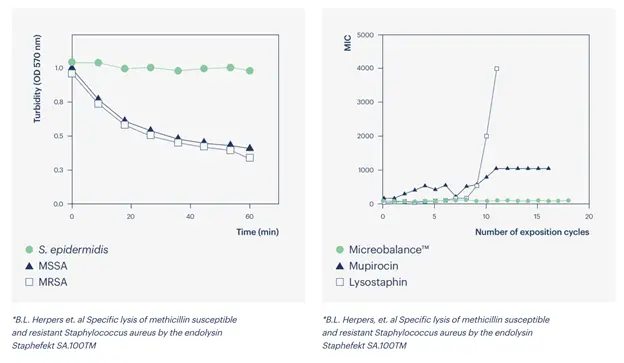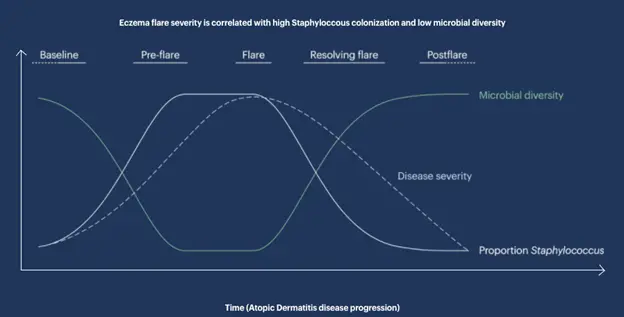
We recently spoke with Skyler Stein, President of Dutch biotechnology company Gladskin to learn more about its global endolysin technology that uses its science to improve inflammatory skin conditions by rebalancing the skin microbiome. Gladskin’s parent company, Micreos, raised about $36.7M in funding last year for its endolysin technology that is poised to replace many antibiotics and overcome some of the challenges of antimicrobial resistance.
HITC: Skyler, can you speak more
about endolysin technology? Can you share the results of clinical trials
related to AD (Atopid Dermatitis) with us?
Stein: Endolysin technology is cutting edge science, but actually it is based on three billion years of nature’s evolution to keep our skin healthy. Our endolysin is so targeted – it only targets a single bacterial species that is causing the problem, and it keeps the rest of your skin’s microbiome healthy. Based on the data from studies we’ve performed, resistance is not expected, making it a safe option to use daily. It doesn’t have the treatment limitations, side effects, or withdrawal symptoms that you can have with immunosuppressants, antibiotics, and steroids.
Micreos launched its double-blinded placebo-controlled Phase I/2A trial for the treatment of mild to moderate Atopic Dermatitis in September 2020.
HITC: Can you talk more about the
endolysin trials you are doing and can you share results?
Stein: We have performed various studies with our endolysin technology. The two summary charts that tell the story the best are the two below. In the chart on the left, you can see that the endolysin is specific to reducing S. aureus (the known trigger for eczema flares) and saving S. epidermis, which is a naturally protective bacteria that helps maintain microbial balance. In the chart on the right, you can see the Staph resistance developing against two common topical antibiotics, while no resistance develops against the use of the endolysin.

HITC: As 2020 comes to a close, have
dermatologists found new, more effective ways of treating eczema?
Stein: There is a tremendous amount of research happening supporting the fact that eczema is a bacterial driven disease. We know that the vast majority of people with eczema have Staph aureus on their skin and that it is causing itch, redness, and inflammation, even if it does not present clinically as a full-blown Staph infection. However, dermatologists have been trained to only use antibiotics in severe cases where there is clear evidence of infection. Endolysins represent a novel and safe opportunity to address the problem-causing Staph in a safe way, without having to use resistance-creating antibiotics.
HITC: What is the correlation between
staph and eczema?
Stein: Dermatologists have always known that staph is opportunistic but physicians now know for sure that for eczema sufferers, staph is causal for flares. There has been clear evidence for quite some time that there is a very high correlation of Staph overgrowth with eczema. The chart below is from a study published by Heidi Kong from the N.I.H. that shows the direct correlation of Staph with eczema flare-ups. In September, a study was published in the Journal of Allergy and Clinical Immunology that provides evidence that Staph bacteria is a direct cause of (not just correlated with) eczema flare-ups, via the inflammation caused by its Second Immunoglobulin-Binding Protein.

HITC: Congratulations on your license agreement with L’Oreal. Is there some data you would like to share with us that you haven’t shared anywhere else yet?
Stein:
Thank you! We are very excited about our partnership with L’Oreal. By combining
our platform technology expertise with their global distribution capabilities,
together we will be able to help millions with inflammatory skin conditions
globally.